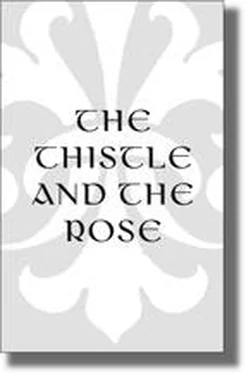Jean Plaidy - To Hold the Crown - The Story of King Henry VII and Elizabeth of York
Здесь есть возможность читать онлайн «Jean Plaidy - To Hold the Crown - The Story of King Henry VII and Elizabeth of York» весь текст электронной книги совершенно бесплатно (целиком полную версию без сокращений). В некоторых случаях можно слушать аудио, скачать через торрент в формате fb2 и присутствует краткое содержание. Жанр: Старинная литература, на русском языке. Описание произведения, (предисловие) а так же отзывы посетителей доступны на портале библиотеки ЛибКат.
- Название:To Hold the Crown: The Story of King Henry VII and Elizabeth of York
- Автор:
- Жанр:
- Год:неизвестен
- ISBN:нет данных
- Рейтинг книги:5 / 5. Голосов: 1
-
Избранное:Добавить в избранное
- Отзывы:
-
Ваша оценка:
- 100
- 1
- 2
- 3
- 4
- 5
To Hold the Crown: The Story of King Henry VII and Elizabeth of York: краткое содержание, описание и аннотация
Предлагаем к чтению аннотацию, описание, краткое содержание или предисловие (зависит от того, что написал сам автор книги «To Hold the Crown: The Story of King Henry VII and Elizabeth of York»). Если вы не нашли необходимую информацию о книге — напишите в комментариях, мы постараемся отыскать её.
To Hold the Crown: The Story of King Henry VII and Elizabeth of York — читать онлайн бесплатно полную книгу (весь текст) целиком
Ниже представлен текст книги, разбитый по страницам. Система сохранения места последней прочитанной страницы, позволяет с удобством читать онлайн бесплатно книгу «To Hold the Crown: The Story of King Henry VII and Elizabeth of York», без необходимости каждый раз заново искать на чём Вы остановились. Поставьте закладку, и сможете в любой момент перейти на страницу, на которой закончили чтение.
Интервал:
Закладка:
“You are right, of course, my lord. But it is a disappointment. I should have liked Arthur to be betrothed to Spain.”
“It will come, Sire. Wait. Let us be watchful and patient. Let us be ready for these troubles when they arise. Lambert Simnel has done us no real harm. You have shown the people that you can quell a rebellion, and it was a master stroke to send the boy to the kitchens. We need patience. Let us not be unduly troubled by the evasiveness of the Spaniards. The money has not really been wasted. The idea is sown in their minds. What we have to show them is that your throne is secure. Then we shall have them suing us for the marriage.”
Henry knew Dudley was right. With luck he would succeed. The result of his careful policies would soon be evident; and if he could get another son he would feel very confident in the future.
In the late spring there was good news. His efforts with the Queen were rewarded. Elizabeth was once more pregnant.

At the end of October Elizabeth the Queen went into retirement in the Palace of Westminster to prepare for the birth of her child. It was not due for another month but in view of Arthur’s early arrival it had been thought wise for the Queen to be prepared.
Margaret Countess of Richmond had arranged the household as she had for the birth of Arthur, and this time she was not harassed by the presence of Dowager Queen Elizabeth Woodville who, to the Countess’s great satisfaction, was still confined at Bermondsey.
The Countess had made a list of all her requirements.
“There must be two cradles,” she had told Elizabeth, “the cradle of state decorated with cloth of gold and ermine and that other in which the baby will sleep.”
Elizabeth listened contentedly. She was delighted to have her mother-in-law to rely on; and as she never questioned any of the Countess’s requirements there was perfect amity between them.
“We must have a good wet nurse . . . that is most important—a strong healthy young woman and her food shall be considered most carefully so that she can give the baby all due nourishment. Then we need a dry nurse, sewers, panterers and rockers of course.”
“As with Arthur,” said the Queen.
“Exactly so. Oh my dear Elizabeth, if this proves to be a boy I shall be overjoyed. Now I have arranged for a physician to be in attendance with the wet nurse at all her meals. That is most important for the health of the child.”
“How good you are.”
“I long to see you with a family of children . . . boys and some girls . . . for girls have their important parts to play in affairs of state.”
“I do agree.”
“I have my eyes on a good woman. She will give birth at the same time as you do. She is a respectable woman and this is not her first child. She has remarkably good health and has reared other children most satisfactorily. Her name is Alice Davy. The day-nurse will be Alice Bywimble. She is a good woman and I have two very good rockers. I have prevailed upon the King to pay them three pounds six shillings and eightpence a year. He thought it a great deal of money for such people but I have impressed on him the need to pay these people more than they would get in an ordinary household to make them realize the importance of serving a royal child.”
“And did he agree?” asked the Queen, wondering for a moment whether she would have to take sides with the King against her mother-in-law and thinking how awkward that would be.
“Oh I brought him round to my point of view,” said the Countess complacently, implying that she could always do that—even with the King.
Elizabeth was relieved. She reached out a hand and took that of the Countess.
“My lady, I thank you. I am so grateful to have you here to take care of these matters.”
“My dear, dear daughter, you cannot be happier than I. You know what my son means to me . . . apart from the fact that he is the King and ruler of us all, and I will say this—that although you come from a house which has for so long been the enemy of my own, there is none I would rather see my son married to than you.”
Elizabeth was deeply moved.
It was so easy to remain in loving friendship with her mother-in-law. All she asked was agreement in everything she did and as she was a very wise woman, this worked out ideally for Elizabeth.
The days began to pass at Westminster. It was quite clear that the new baby was not going to make a premature appearance, but arrived on the night of the twenty-ninth of November of that year 1489, which was exactly the time it was due.
The child was rather disappointingly a girl. But a strong healthy girl—more lusty than Arthur had been.
The Queen requested that she should be called after the King’s mother to whom she owed so much, and the King was most graciously pleased to agree.
So in due course the Princes Margaret joined her brother Arthur in the royal nurseries.

It was pleasant to retire to Greenwich. There she would stay until the birth of the child, for Elizabeth was once again in what people who do not have to endure it call a happy condition.
The nursery now contained Arthur who was five years old and Margaret nearly two. Arthur was a gentle, serious child, already showing an interest in his books. Perhaps this was because he was a little delicate. The King watched him anxiously. He was afraid something might happen to Arthur who was more than a son to him; he was one of the chief reasons why the people wanted him to remain King.
Minors were a menace. That had been the lesson of the ages. What the people always wanted was a strong king who had a son or sons in his youth so that by the time he died there would be someone strong to take his place.
“How I do hope this one will be a boy,” prayed Elizabeth.
Margaret was already showing herself to be a somewhat forceful little creature. She wanted her own way all the time and invariably got it, for she had grown out of the childish way of screaming for it and employed more devious methods to cajole the guardians of the nursery. The only person of whom Margaret seemed to feel some awe was her grandmother the Countess of Richmond, for the child was shrewd enough to recognize that there was a lady to be obeyed, and although she avoided having to comply whenever she could, she did know when it would be expedient to do so.
Elizabeth prayed that Arthur’s health might be improved and Margaret’s temper controlled and contemplated what the new one would be like.
She enjoyed being at Greenwich—less important of course than Winchester, the birthplace of Arthur, or Westminster, that of Margaret. But this one after all was but a third child.
There was a peace here among the green fields with the river meandering through them. She was not surprised that the Romans had called it Grenovicum when they had seen it and later the Saxons had named it Grenawic—the Green Town. It had been a royal residence since the days of Edward Longshanks and it had become increasingly popular ever since. Henry had enlarged the Palace and because the river was encroaching had added a brick wall along the waterfront. The tower in the Park had been started years ago and not finished until Henry had it completed. He was now talking about building a monastery for the Grey Friars who lived in the district. It seemed strange that Henry should consider spending money on such things for he was usually so careful and hated to see it, as he always said, “wasted.” But this was different. This was adding to the wealth of the country. He said: “It is important that we preserve our buildings.”
Читать дальшеИнтервал:
Закладка:
Похожие книги на «To Hold the Crown: The Story of King Henry VII and Elizabeth of York»
Представляем Вашему вниманию похожие книги на «To Hold the Crown: The Story of King Henry VII and Elizabeth of York» списком для выбора. Мы отобрали схожую по названию и смыслу литературу в надежде предоставить читателям больше вариантов отыскать новые, интересные, ещё непрочитанные произведения.
Обсуждение, отзывы о книге «To Hold the Crown: The Story of King Henry VII and Elizabeth of York» и просто собственные мнения читателей. Оставьте ваши комментарии, напишите, что Вы думаете о произведении, его смысле или главных героях. Укажите что конкретно понравилось, а что нет, и почему Вы так считаете.












